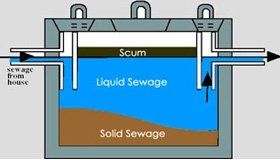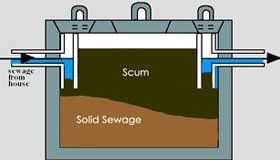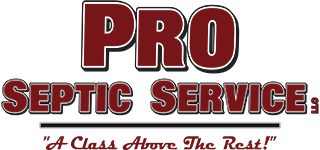The Do's and Don'ts of Septic System Care
These tips will help you to keep your septic system running efficiently and effectively. Read them all for information about septic tank
problems and how to avoid causing them
For further information and details, reach out to Pro Septic Service LLC. We offer expert septic system maintenance in Stevens Point, Wisconsin
and surrounding areas. Call us at (715) 342-8020
to request an estimate.

What to Do:
DO
learn the location of your septic tank and absorption area. Keep a sketch of it with your maintenance record handy for service visits.
DO
have your septic tank cleaned regularly by a licensed professional every two to three years.
DO
keep your septic tank cover accessible for inspections and cleanings. Have risers installed if necessary.
DO
call a professional whenever you experience problems with your septic system, or if there are any signs of system failure.
DO
keep a detailed record of repairs, pumping, inspections, permits issued and other maintenance activities.
DO
conserve water to avoid overloading the system. Be sure to repair any leaky faucets or toilets.
DO
divert other sources of water (i.e. roof drains, house footing drains and sump pumps) away from the septic system. Excessive water overloads the soil in the absorption area and keeps it from naturally cleansing the wastewater.

What NOT to DO:
DON'T go down into a septic tank. Toxic gases are produced by the natural treatment processes in septic tanks and can kill in minutes. Extreme care should be taken when inspecting a septic tank, even when just looking in.
DON'T allow anyone to drive or park over any part of the system.
DON'T plant anything over or near the absorption area except grass. Roots from nearby trees or shrubs may clog and damage the drain lines.
DON'T dig in your absorption area, build anything over it, or cover the absorption area with a hard surface (i.e. concrete or asphalt). The area over the absorption area should have only a grass cover. The grass will not only prevent erosion, but will help remove excess water.
DON'T use your toilet as a trash can or poison your septic system and groundwater by pouring harmful chemicals and cleansers down the drain. Harsh chemicals can kill the beneficial bacteria that treat your wastewater.
DON'T use a garbage disposal without checking with your local regulatory agency to make sure that your septic system can accommodate this additional waste.
DON'T allow backwash from home water softeners to enter the septic system
DON'T allow anyone to drive or park over any part of the system.
DON'T plant anything over or near the absorption area except grass. Roots from nearby trees or shrubs may clog and damage the drain lines.
DON'T dig in your absorption area, build anything over it, or cover the absorption area with a hard surface (i.e. concrete or asphalt). The area over the absorption area should have only a grass cover. The grass will not only prevent erosion, but will help remove excess water.
DON'T use your toilet as a trash can or poison your septic system and groundwater by pouring harmful chemicals and cleansers down the drain. Harsh chemicals can kill the beneficial bacteria that treat your wastewater.
DON'T use a garbage disposal without checking with your local regulatory agency to make sure that your septic system can accommodate this additional waste.
DON'T allow backwash from home water softeners to enter the septic system
Do NOT Flush the Following:
- Coffee Grounds
- Dental Floss
- Disposable Diapers
- Cat Litter
- Sanitary Napkins
- Feminine Hygiene Products
- Cigarette Butts
- Condoms
- Fat, Grease Or Oil
- Paper Towels
- Paints
- Varnishes
- Thinners
- Waste Oils
- Photographic Solutions

